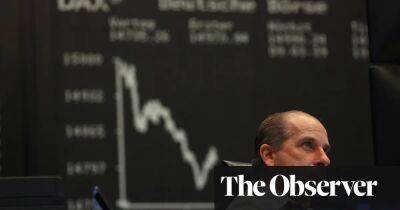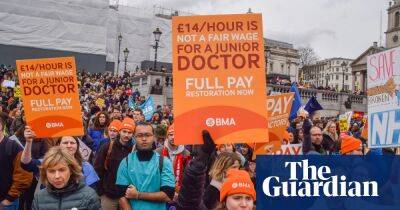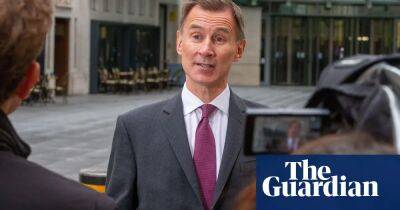Hunt’s budget shows Britain is doing less badly – that’s not the same as doing well
In 2020 it was the global pandemic. In 2022 it was Russia’s invasion of Ukraine. This year’s budget took place amid fears of a fresh global banking meltdown.
Jeremy Hunt only made a glancing reference to the collapse of Silicon Valley Bank but as he was speaking, share prices in London were crashing amid fears that Credit Suisse could be the next domino to fall. The risks of a repeat of the global financial crisis of 2008 underscores the importance of not reading overmuch into the slightly rosier forecasts for the UK outlined by the chancellor.
To be sure, the chancellor will be relieved that the independent Office for Budget Responsibility now thinks the economy will just about avoid the two consecutive quarters of falling output that would denote a technical recession, and that growth will be stronger in the likely pre-election year of 2024 than predicted last November at the time of his autumn statement.
But doing less badly is not the same as doing well. Hunt said he was delivering a “budget for growth” – a refrain that has been heard many times by Conservative chancellors over the past 13 years. The reality is that the UK is battling against three powerful headwinds: rising interest rates, rising taxes and a cost of living crisis. It could certainly do without the added pressure of a credit crunch caused by bank failures. Despite the chancellor’s bullish performance, living standards are on course for their biggest two-year fall since the mid 1950s while taxes as a share of national income will be at their highest since the second world war by 2027-28.
After announcing tax and spending changes last autumn that will eventually raise more than £50bn, Hunt was in a more generous mood this time. The budget represented a
Read more on theguardian.com





















